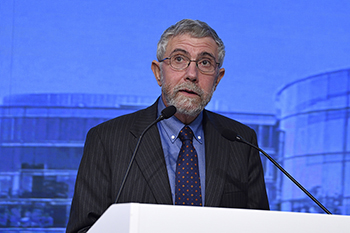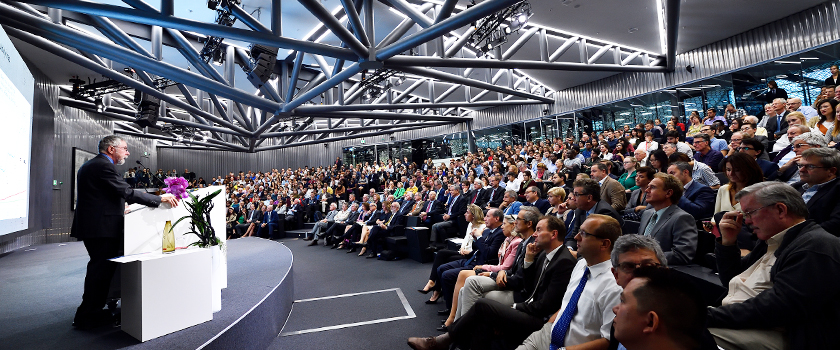
The Graduate Institute of International and Development Studies created this Prize in tribute to Edgar de Picciotto and his family for their exceptionally generous support which has enabled the Institute to finance a considerable part of the Student House. The Prize is awarded every two years and is worth CHF 100,000. It is intended to reward an internationally renowned academic whose research has contributed to enhancing the understanding of global challenges and whose work has influenced policymakers. The Prize has previously been awarded to Amartya Sen, 1998 winner of the Nobel Prize in Economics, and Saul Friedländer, Emeritus Professor of History at UCLA and winner of the 2008 Pulitzer Prize for General Non-Fiction.
Click here to watch the video of the event, including Paul Krugman’s lecture.
Learn more about The Student House from our video interview with its architects.

